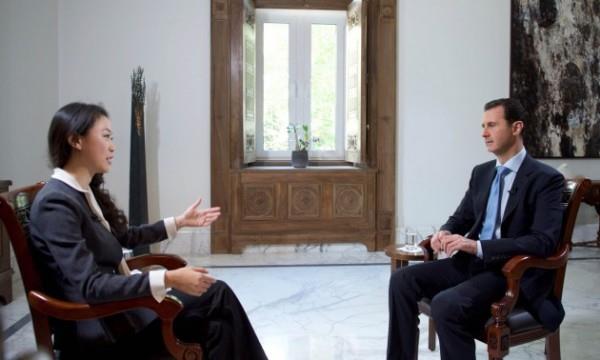
What's China up to in Syria? Economic realpolitik, basically
Over the past seven years, China has seldom weighed into the Syrian conflict. Unlike the more involved powers – i.e Russia and the United States – Beijing hasn't sent forces or participated in diplomacy aimed at resolving the crisis (although it did veto six Western-backed UN Security Council resolutions on Syria).
As for economic relations, it has remained similarly aloof from the fray for most of the war. But as the conflict nears an apparent conclusion, with the Syrian government regaining control over vast swaths of territory from ISIS and with de-escalation zones now established in four areas across the country, China's cautious economic approach towards Syria seems to be slowly, but decisively, changing.
The DailyBrief Must-reads from across Asia - directly to your inboxThe reconstruction of Syria will cost hundreds of billions of dollars, and China wants its share of the pie. In July, Beijing announced a US$2 billion dollar plan to build an industrial park in Syria for 150 Chinese companies, although few details about the project were revealed. Then, in August, Chinese companies participated in the 59th Damascus International Fair. That was preceded by a Syria Day Expo organized by the Syrian embassy in Beijing, with hundreds of Chinese specialists in attendance.
More revealing, however, about China's understanding of the situation on the ground – and its intentions to carve out a significant Chinese role post-conflict Syria – was a recent visit by the Chinese ambassador in Syria to Manin, a small town just north of Damascus.
Ambassador Qi Qianjin visited Manin, a town of 100,000 inhabitants – half of them internally displaced persons – on October 31. The Syrian government's main media agency, SANA, covered the visit – which is interesting given longstanding government suspicion of activities involving foreign ambassadors ever since the French, American and British ambassadors visited towns witnessing anti-government protests in 2011.
China, however, represents a different type of world power in the eyes of Damascus. Syrian President Bashar al-Assad, in an interview given in March of this year, called China a "real friend," adding that China can be involved in "every sector," including infrastructure and industrial projects.
The Syrian government is, unsurprisingly, looking forward to handing the Chinese a leading role in the reconstruction process – and to the Chinese money that will be involved, because it will come with no political strings attached. By contrast, the US and EU want to withhold reconstruction funds unless a "political transition" takes place in Syria.
During his visit, ambassador Qi inspected projects completed in Manin as part of a US$1 million grant provided by the Chinese government through the International Committee of the Red Cross.
US$1 million is a sizeable chunk of money when compared to the average annual budgets of Syrian municipalities. The grant went to renovate a main road and the town's water pipes, and a renewable energy project is still to be completed. Qi stated that China "trusts Syria's ability to restore normal life to all parts of the country."
The visit, taken at face value, was an important public relations move highlighting the benign nature of China's policy in Syria. Yet it was also more than a mere PR stunt.
To outside observers, small, mountainous Manin may seem like a strange target for Chinese economic diplomacy. But the facts on the ground tell a different story. Manin is close to the Syrian capital, the country's main population and economic hub. And it was not engulfed in the conflict, so its infrastructure remains intact. Surrounded by cities and towns which were ravaged by war – their residential units, factories, small workshops and dairy farms all destroyed – its own factories survive. Five functioning concrete brick factories, and its location, mean Manin is poised to become a hub for regional reconstruction.
Local sources indicate that over 100 natives of Manin have established commercial and trade relations with China and a number of them have investments there. And last but not least, it has little in the way of military-strategic value, meaning China's presence there does not threaten or disturb any other power's presumed "sphere of influence."
In such a light, Ambassador Qi's little visit does not seem so random after all. On the contrary, it reveals how China's policy in Syria is grounded in cautious optimism, political realism and, of course, sound economic judgment.
Fadi Esber is a founding associate at the Damascus History Foundation and the editor of
Comments
Legal Disclaimer:
MENAFN provides the
information “as is” without warranty of any kind. We do not accept
any responsibility or liability for the accuracy, content, images,
videos, licenses, completeness, legality, or reliability of the information
contained in this article. If you have any complaints or copyright
issues related to this article, kindly contact the provider above.

















Comments
No comment